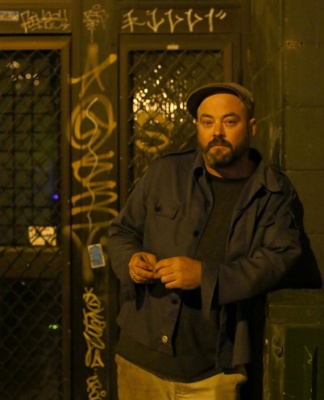ROAD
Lyttelton Arts Factory, Lyttelton
13/07/2016 - 23/07/2016
Production Details
Written by Jim Cartwright
Presented in collaboration with Top Dog Theatre
It’s the same the whole world over: It’s the poor what gets the blame; It’s the rich what gets the pleasure. Ain’t it all a bleeding shame. But for the residents of No Hope Street, there’s a party to go to, and you’re invited. Your host is Scullery, of no fixed abode.
Jim Cartwright’s Road was written 25 years ago but it’s as true today as then. It tells the lyrical story of a world that breeds Trump and Brexit, a world where the rich get richer and the poor get nowhere or drunk.
LAF opens its inaugural theatre season in collaboration with Top Dog Theatre. An impressive cast features Tom Trevella, Janice Gray, David Ladderman, Lizzie Tollemache, Toni Jones, Shay Horay and Anthea Struthers working alongside local talent and youth from LAF’s own drama programmes.
“Without a doubt, the best performance I ever saw is Jim Cartwright’s Road…” – Emma Rice, The Guardian
Road performs at the
Lyttelton Arts Factory (LAF), Oxford St, Lyttelton
from July 13 – 23
7.30pm (no show Mondays)
Bookings and enquiries to www.theloonstheatretrust.com
WITH
Tom Trevella
Janice Gray
David Ladderman
Lizzie Tollemache
Toni Jones
Shay Horay
Anthea Struthers
Hamish Tong
Anna Willow
Derek Doddington
Theatre ,
As relevant now as it was 25 years ago
Review by Ruth Agnew 14th Jul 2016
“It’s the same the whole world over: it’s the poor what gets the blame. / It’s the rich what gets the pleasure. Ain’t it a bleeding shame.”
The truth of these words from Jim Cartwright’s Road, a play written in England 25 years ago, is starkly apparent in The Loons’ rendition of this modern classic at The Lyttleton Arts Factory. While the actors all adopt uniformly convincing working class English accents (retaining the poetry and rhythm in Cartwright’s words) the characters and their stories could be found in the suburbs of Christchurch.
Road is set in No Hope Road, a pre-Reality TV ‘Benefit Street’ or ‘Struggle Street’. A pint at the pub is the only relief from poverty-stained lives, where loneliness, addiction, violence and crime creep in the broken windows and thin walls.
With such a stellar ensemble cast it seems almost unfair to single out performers for special mention, but in this solid group there are still definite stand outs. The combination of seasoned professionals alongside young actors in training works well, with enormous potential evident in some of the younger actors. Hamish Tong, as a disillusioned young man staging an informal hunger strike as a reaction to his unexpected redundancy, brings a beautiful rawness and vulnerability to his performance.
Amongst the more experienced actors, the always amazing Janice Gray wobbles and warbles as an aging alcoholic, giving the audience a haunting song that alone is worth the ticket price. Tom Trevella, as Scullery, the down-and-out cheeky chappie who serves as the narrator, heads the piece with assurance and a light touch that makes his lewd and lecherous character appealing and approachable.
One of the best comic monologues came from Anna Willow, who earns one of the loudest laughs of the night for her well timed bottom-shaking, before turning the humour upside down in a moment of pure pathos. Another actor who skilfully straddles the line between tragedy and comedy is Derek Doddington, whose glimpse of another way of life during his time in the RAF makes his descent back into poverty and loneliness even sadder.
The universal nature of the themes of poverty and hopelessness is highlighted through the use of images of the characters moving through post-quake Christchurch. The tightly constructed set manages to portray the claustrophobic nature of social housing estates, and also provide a backdrop screen for well integrated filmed scenes.
The familiar sights juxtaposed with foreign accents emphasises the idea that the children skulling cheap booze amongst graffiti and rubble could be our own. The problems these young people of English housing estates inherit, born into poverty and dragged down by circumstance, are the same ones that the New Zealand children – sleeping in cars, in freezing cold garages, on the floors of Marae and in overcrowded state houses –face every day.
The fact that Cartwright’s Road is as relevant now as it was 25 years ago speaks volumes. By putting it on now, as our national housing crisis becomes harder and harder to ignore, The Loons are asking us to look at ourselves and what we can do to change the script. Go see this play while you can.
Copyright © in the review belongs to the reviewer





Comments